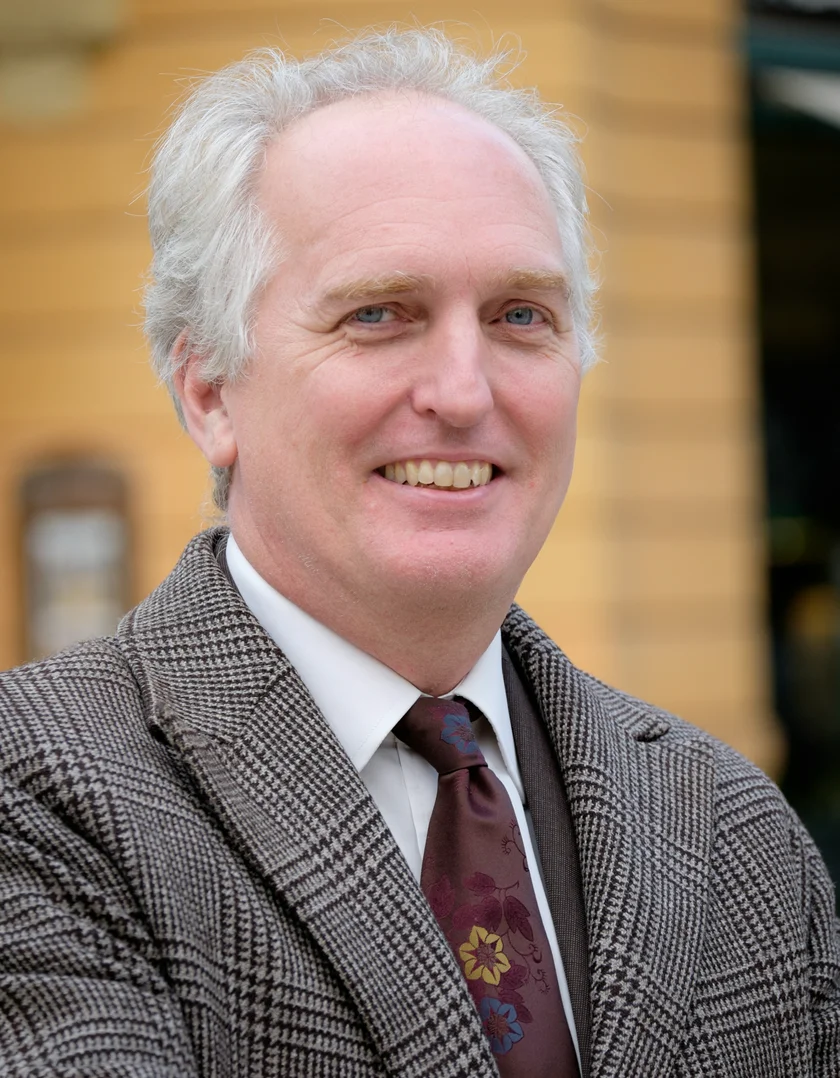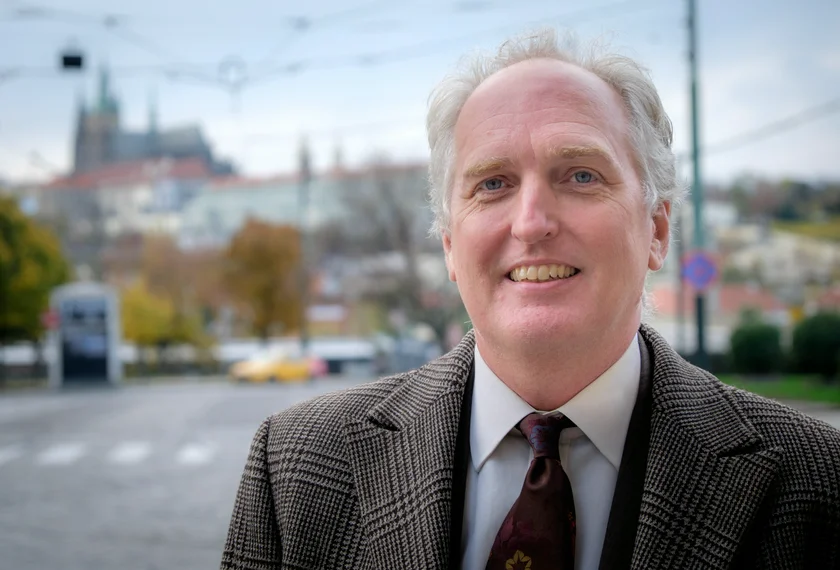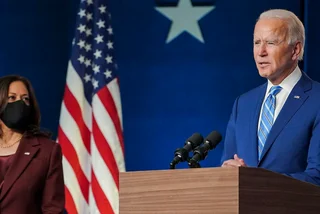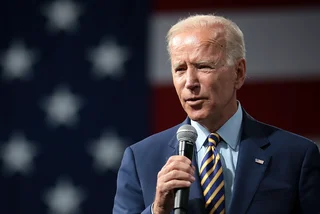Weston Stacey has been the executive director of the American Chamber of Commerce in the Czech Republic for 24 years. Expats.cz spoke with Stacey about perceived conflicts between Czech and American business interests, the Czech Republic’s "Country of the Future" motto, Black Lives Matter, and the 2020 U.S. election.
This interview has been edited for length and clarity.
Some people think that the American Chamber of Commerce exists only to further U.S. business interests. How does the chamber serve the interests of the Czech Republic?
The U.S. chamber was created to represent free enterprise and limit government regulation. Unlike most chambers of commerce, it’s actually fully independent from the U.S. government. We're entirely funded by business. So, of course, we promote U.S. investment, Czech investment, and make the business environment here better. We do listen to U.S. companies, but if you look at our members, they are Czech, American, European. Most of the company representatives I speak to regularly are Czech.
But when there’s a conflict between Czech and American business you will side with the Americans, right?
When there is a public procurement, there's always going to be this accusation that we're with the U.S. company. Typically, we don't tend to get involved in procurement unless we believe it's something that's an essential development for the economy. Our goal? We want the Czech Republic to be among the top ten economies of Europe.
But last spring you got quite involved in a bid by Honeywell to produce P.P.E. for the Czech Republic. The bid to make 90 million FFP2 respirators was rejected after Czech producers protested, and you complained about this more than once on LinkedIn. So why were you favoring a U.S. firm?
Honeywell is a publicly listed company. I don't know for a fact that all of those shareholders are U.S. citizens, probably not. But making paper masks is not in the long-term strategic interest of any country. Let’s say they cost about CZK 20 to produce and you need to produce a very large volume of masks to make a profit. The number of masks that Honeywell could produce was more than the Czech government thought that it needed.
We (the chamber) thought that that was not right. I think that there was a belief in some areas of the Czech government that the pandemic was going to be over in August and as we see it's going to go on for two years. One of the main ways to keep the economy open is to ensure the high quality of masks that people are wearing in the metro. Having homemade cloth masks is a nice story but...
So why can’t Czechs make these masks? Why should the Czech government favor Honeywell?
Honeywell already had a certification within the EU for mass production. Most of the Czech P.P.E. makers did not. So the capability was there and my point to the government and to the Czech Nanotech Association was that making these masks is not in the long-term strategic interest of Czech companies, it is not going to be profitable. Why put a lot of money into it? There are better ways to get the mask that cost less. And what happened in the end?
We all got masks?
The Czech government structured the deal so that it ended up not being very attractive to Honeywell. This is a democracy, they have the right to make that decision, but I am not okay with the price. Honeywell would have made the masks at pre-pandemic prices. So the price should be about CZK 28 per 25 to 30, right now the price is about 38. That could mean fewer people buying high quality masks.

How do you rate the Czech government's handling of Covid-19 on a 1 to 10 scale, with 10 as perfection?
After the spread of Covid in Italy last spring, the government had a rational response and made a responsible choice. The people who are pointing the finger now at the government are saying, if you don’t regulate me, I will not regulate myself. But it wasn't the government that wanted to go to Croatia this summer. It wasn't the government that didn't want to obey any sort of safe behavior. It was individual people.
But don’t you think the government should have taken action sooner to prevent the second wave?
There was a regional election in October, right? So the government was taking a victory lap for what they did in May and that's understandable because they wanted to win elections. I think it’s now boomeranging back on them.
Our goal? We want the Czech Republic to be among the top ten economies of Europe.
Is the government doing enough to support business and prepare for the end of the pandemic?
The Czech government needs a computer model that allows for the input of factors that can measure both the impact of the virus during economic activity and the impact of the virus on health. This is a country full of really bright software engineers and really bright economists and really good epidemiologists. So the government should test measures in this model -- you could put in a thousands different scenarios -- and make the results public. This would give everyone greater confidence. There is an issue now with trust in the government, right?
What about the aid the government is providing to businesses? Is this being channelled correctly?
Our argument is simple, you’re targeting the public safety measures, but you're not targeting the economic rescue measures.
Are you saying some industries or areas deserve more support than others?
Prague has been the most hit the worst by the decline in international travel. If you look at tourism, the rest of the country is more dependent on domestic tourism. Secondly, people are working at home. So Prague leads the country in terms of people commuting, spending the day doing their shopping, eating lunch, buying clothes, and doing stuff in the city. It's being hit in a much more serious way than the rest of the country. So let's acknowledge that and focus the public money where the damage is the highest. And that's not happening.
I think if people outside of Prague see that Prague is getting more government money, that’s going to be very unpopular.
Well I agree that if you are going to save hotels in Prague, people in the rest of the country shouldn’t pay for it. So when the recovery occurs and the country opens, put a higher room tax on Prague hotels. It should be the same for Prague restaurants. This is also a way of paying back subsidies.
How can the Czech Republic live up to its new marketing motto, "Country of the Future?" And in a country known for its cynicism, doesn’t this motto invite ridicule?
Oh sure, many people use “country of the future” sarcastically when things go wrong. But it's great that somebody stated the ambition because when I talk to tech entrepreneurs, they're extremely proud of their country. They just won't say it.
If you want to increase productivity, if you want to have any sort of tech investment, you need to build infrastructure. And we need enough residences so that people aren’t spending more than 30 perecent of their take-home pay on rent or a mortgage.
So what stands in the way of the Czech Republic being the Country of the Future right now?
I would say complacency is number one. This country has been very successful. There is a tendency to believe that success will continue forever.
It takes 13 years on average to get a construction permit, and the Czechs are 157th place among 190 countries when it comes to the ease of obtaining a building permit. Do you consider this a concrete example of complacency?
I actually told the minister [of Industry and Trade], if you want to be the country of the future, why do you have the current construction permit process? If you want to increase productivity, if you want to have any sort of tech investment, you need to build infrastructure. And we need enough residences so that people aren’t spending more than 30 perecent of their take-home pay on rent or a mortgage. That's all about fixing the construction act. [As of press time, an amendment to the act was under discussion in the lower house of Parliament, which if passed, would be the 27th amendment to the act in 15 years].
What other obstacles are there for the Country of the Future?
I think that this country has enormous potential to do research and create a lot of commercial products from that research that will be globally successful. But there isn’t enough investment into scientific research, we’re not making the big bets. We don't have the big research power of Germany.
There is plenty of research getting done here. You mean better cooperation between companies and universities?
We need to have some big industrial clusters around the automotive and aviation industries. It happened with GE Aviation [exclusively making their turboprop engines in the Czech Republic]. That's a huge sophisticated product. And what I say is why don't we have nine of these projects? If we want to be the country of the future we can't just have one aircraft engine cluster. We have to have something similar for automotive, and AI, and so on.
This is a country where wages are far lower than in Germany, but often the prices of goods are not. What stands in the way of higher wages?
The country of the future is all about value added. Right for every hour worked. The product should be of higher value. We have to go to German productivity levels.
Czechs are now working some of the longest hours in Europe. But their wages are still 51 percent of the EU average. It seems unfair, dare I say exploitive?
I can sympathize with the feeling. But It's not taking into account all the factors. Household consumption here is lower because salaries are lower, prices are lower.

I would like Czech wages to be high. But it's a process right? You're not going to get people to pay higher wage unless the economic situation demands that they do it.
Let's talk politics. You criticized President Milos Zeman on social media for saying “all lives matter” at an event sponsored by the American embassy. Aren't you supposed to be neutral? And wouldn't outgoing President Donald Trump agree with President Zeman?
There's no doubt that the outgoing U.S. president would agree with President Zeman, but I don't represent the U.S. president. And I think what we, the Chamber, were criticizing was not that President Zeman said all lives matter, of course all lives matter. What we criticized was that he said “Black lives Matters” is racist. “Black lives matter is simply a very clear statement that there is a minority group, Black Americans, who believe that they are treated differently, and especially by law enforcement.
Have some of Trump's comments made your job more difficult?
Well, some of the things that he said about NATO, like Europe not carrying its weight. Five years ago, most of my time was trying to explain Czech politics to American investors. And now my time is spent trying to explain American politics to Czechs. The steel and aluminum tariffs were not taken well, they impacted the Czech Republic. The continued threat of more tariffs are not seen favorably.
And the upshot of the Trump years is?
The U.S. has long had a great reputation for managing the economy. I think that that was diminished a bit by 2008 but the handling of the COVID pandemic has lowered the reputation of U.S. expertise.
What message do you feel this election, in all its weirdness -- including Donald Trump claiming fraud and tweeting "Stop the Count" gives to the world, including the Czech Republic?
He should never have said stop the count. To say that every one of the votes remaining to be counted was invalid is just antithetical to democracy. We should not think, however, that one election solves every problem, or that one side of the political debate has all the answers or is the side of angels. What has been happening in the U.S. even before the rise of Donald Trump has been a lesson in real time with real effects in how complex a democratic system is and how important individual participation in the process is. The first big challenge is how to re-apportion the voting districts. How we do it now is just about winning elections, and not about representative government. If we draw districts to represent geographies and not voting preference, we will get leaders who are less partisan, and more interested in benefiting all segments of the population.
What has been happening in the U.S. even before the rise of Donald Trump has been a lesson in real time with real effects in how complex a democratic system is and how important individual participation in the process is.
This was a razor thin race. A lot of ink has been spilled over why people still voted for Donald Trump despite something of the things he has said and done, such as lying, namecalling and engaging in behavior that some say is irrefutably racist. How would you explain such a close race to Czechs?
It should not come as a surprise that the race was so close. America has two dominant views of what it is. First, it is a country of immigrants that is bound together by the Constitution and Declaration. Second, that it is a European, Christian nation. Mixed into that are different views of the role of the government. America is changing, with Hispanic, Asian, and Black minorities projected to become more populous than the white majority. The Baby Boomer generation in America is also aging, which increases the demand and desire for the government to provide more social services.
Do you see U.S. politics changing after this election, or will people just dig their feet in?
The intense focus on elections, and the extreme gerrymandering occurring in many states, increase the need to raise money and that helps to increase the partisanship. You would need both parties to agree to change their business model. But Americans are more politically active now, and the great “silent majority” of Americans want politics to stop with the performance art on cable television and find pragmatic solutions. If that group stays active, the power of donors and partisanship is reduced, and something could shift.
To learn more about the American Chamber of Commerce's activities in the Czech Republic visit www.amcham.cz.












 Reading time: 11 minutes
Reading time: 11 minutes 


















